Posted on 3/28/2025

Leaving your car parked for an extended period may seem simple, but improper storage can lead to mechanical issues, dead batteries, and even cosmetic damage. Whether you're traveling for months, storing a seasonal vehicle, or simply not using your car regularly, taking the right precautions will ensure it's in good condition when you're ready to drive again. Long-term parking requires more than just turning off the engine and walking away—here’s how to protect your car while it's not in use. Preparing the Car for Storage One of the most important steps before long-term parking is making sure the car is properly maintained. Oil and other fluids break down over time, so starting with fresh engine oil, coolant, and brake fluid helps prevent corrosion and buildup. A full gas tank is also essential to prevent condensation from forming inside the fuel system. Adding a fuel stabilizer can help keep the gasoline from degrading and ensure the engin ... read more
Posted on 2/28/2025
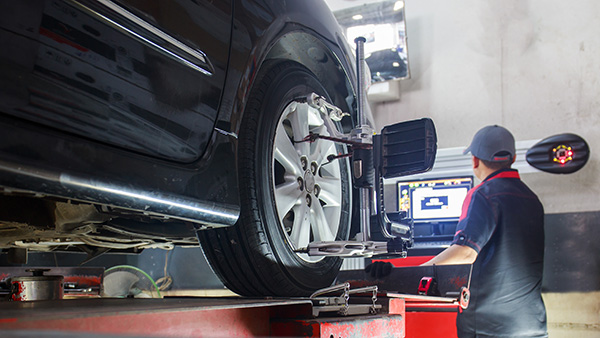
If your car drifts to the left or right when you’re driving on a straight road, it’s a sign that something isn’t right. A car pulling to one side can be frustrating, but more importantly, it can be a safety concern. The last thing you want is to struggle with your steering or have your vehicle veer unexpectedly, especially at higher speeds. Identifying the cause early can help prevent unnecessary tire wear, improve fuel efficiency, and make your drives safer. Common Causes of a Car Pulling to One Side There are several possible reasons your vehicle might not be driving straight. Some are minor issues that require a quick fix, while others may indicate more serious problems that need immediate attention. One of the most frequent causes is improper wheel alignment. Over time, regular driving, potholes, and road imperfections can knock your wheels out of alignment. When this happens, your tires won’t make equal contact with the road, causing the ... read more
Posted on 1/31/2025
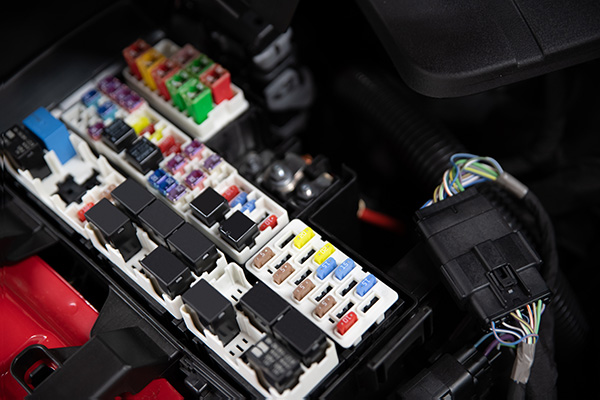
If your car’s headlights suddenly stop working, or you find that your power windows aren’t responding, you might suspect a problem with your car’s electrical system. But what if the issue lies not with the devices themselves but with the tiny components that regulate and protect their circuits—your car’s fuses and relays? Knowing how to identify a faulty fuse or relay can save you time, money, and headaches. The Role of Fuses in Your Car’s Electrical System Car fuses are small but essential components designed to protect your vehicle’s electrical circuits from overloading. When too much current flows through a circuit, the fuse “blows,” effectively stopping the electrical flow to prevent damage to more expensive components. Typically located in a fuse box under the dashboard or hood, these fuses come in various sizes and ampera ... read more
Posted on 12/20/2024

Power windows have transformed the way we interact with our vehicles. Gone are the days of manually cranking a handle to roll the window up or down. While convenient, power windows are not without their issues. From sudden failures to slow operation, these systems can leave you frustrated and in need of repairs. Let’s explore the common problems with power windows, why they happen, and what can be done to fix them. Why Power Windows Are Prone to Issues Power windows rely on a combination of mechanical and electrical components to function. This includes a motor, switches, a regulator, and wiring. Over time, wear and tear, exposure to moisture, and even everyday use can take a toll on these components. Since power windows are used frequently, they’re more likely to encounter problems as a car ages. Window Stuck in Place One of the most common issues is when a power window gets stuck, refusing to go up or down. Several factors, including ... read more
Posted on 11/29/2024

When we think of automotive icons, Mercedes-Benz stands out as one of the world’s most legendary car brands, renowned for its innovation, luxury, and engineering excellence. Throughout its history, Mercedes-Benz has introduced a variety of models that not only turned heads but also set new standards for the industry. Let’s take a look at some classic Mercedes-Benz models that played a key role in shaping the company’s legacy, and learn why these cars remain memorable to this day. Mercedes-Benz 300SL Gullwing (1954–1963) The Mercedes-Benz 300SL Gullwing is one of the most iconic sports cars ever made, with its distinctive gullwing doors, powerful performance, and unmatched style. Originally developed as a race car, the 300SL quickly became the car of choice for automotive enthusiasts who craved both speed and elegance. Its fuel-injected engine was revolutionary for the time, providing it with unmatched power and making it the fastest production ... read more
Posted on 10/31/2024
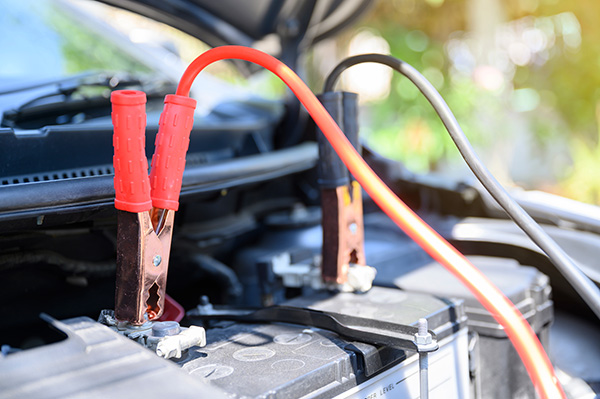
Few things are as frustrating as walking out to your car, turning the key, and... nothing. A dead car battery can catch anyone off guard, but the good news is that your vehicle often gives you warning signs long before it reaches that point. Knowing how to spot these symptoms can save you from being stranded with a non-starting car. So, how do you know if your car’s battery is dying? 1. Slow Engine Crank Ever noticed that your car seems sluggish when you try to start it? This is often the first red flag. When your battery is weak, it struggles to supply enough power to turn the engine over. Instead of the usual smooth ignition, you may hear a slow crank followed by the engine struggling to fire up. This hesitation can be a clear indicator that your battery is nearing the end of its life. If this is happening consistently, don’t wait—get your battery tested or replaced before you’re left with a car that won’t start at all. 2. Dim ... read more
Posted on 9/27/2024

Land Rovers are known for their luxury, off-road capability, and rugged style. They offer a unique driving experience, especially for those who love adventure and tackling difficult terrains. However, as with any vehicle, they aren’t immune to problems. Despite their robust design, Land Rovers are known for encountering certain issues more frequently than others. Whether you’re a long-time owner or considering purchasing one, being aware of these potential problems can help you stay ahead in maintaining your Land Rover and extending its lifespan. Let’s look at the six most common problems that Land Rover owners face. 1. Air Suspension Issues One of the standout features of many Land Rover models is their advanced air suspension system, designed to deliver a comfortable ride over both paved roads and off-road terrain. However, this same system is often prone to failure, especially as the vehicle ages. Owners have reported that the air suspension tend ... read more
Posted on 8/30/2024
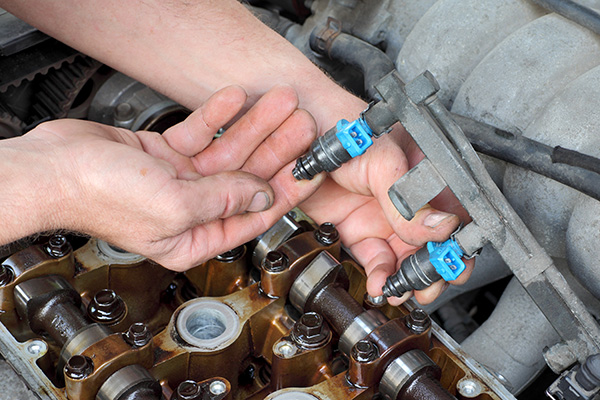
Maintaining your car's fuel injectors is crucial for optimal performance and efficiency. Fuel injectors deliver fuel into the engine, ensuring your vehicle runs smoothly. But how often do you think about their maintenance? Many drivers overlook this aspect, leading to potential issues down the road. We will explain the essentials of fuel injector maintenance and why it's so important for your car's health. The Car's Fuel Injectors Fuel injectors are a critical component of your car's engine, responsible for spraying fuel into the combustion chamber. This process needs to be precise, as the right amount of fuel, delivered at the correct time, ensures efficient combustion. Over time, injectors can become clogged with dirt and debris, hindering their performance. Regular maintenance helps keep them clean and functioning properly, which can significantly impact your car's fuel efficiency and overall performance. Signs Your Fuel Injectors ... read more
Posted on 7/26/2024

We've all heard the term distracted driving, yet its implications are often underestimated. In a world where multitasking is celebrated, taking your eyes off the road for even a few seconds seems harmless. But those few seconds can be the difference between being safe and risky. So, why exactly is distracted driving so dangerous? The Three Types of Distractions Distracted driving isn't just about texting. It encompasses a variety of activities that divert attention from driving. There are three main types of distractions: Visual Distractions: Anything that causes you to take your eyes off the road, such as looking at a GPS or checking your phone. Manual Distractions: Activities that take your hands off the wheel, like eating, drinking, or adjusting the car stereo. Cognitive Distractions: When your mind wanders away from the task of driving, perhaps you're daydreaming or engrossed in a heated conversati ... read more
Posted on 6/28/2024
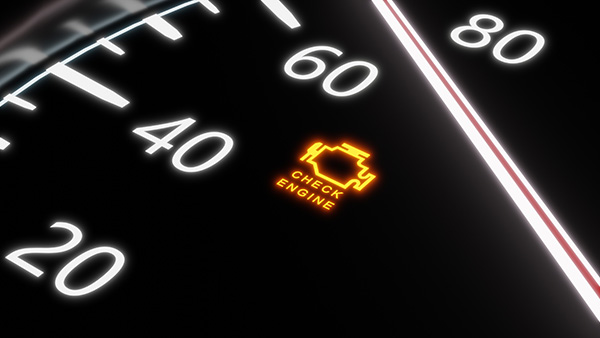
The check engine light is an important indicator that something in your vehicle's system needs attention. Ignoring it can lead to more significant issues later on. We have prepared a list of possible reasons why your Volkswagen's check engine light might be on and what steps you should take. The Check Engine Light The check engine light is part of your Volkswagen's onboard diagnostics system. When this light illuminates, it means the car's computer has detected an issue that requires further inspection. The problem can range from something as simple as a loose gas cap to more severe issues like a failing catalytic converter. Understanding the common triggers for this warning light can help you react appropriately. Common Reasons for the Check Engine Light 1. Loose or Faulty Gas Cap A loose or faulty gas cap is one of the simplest and mos ... read more